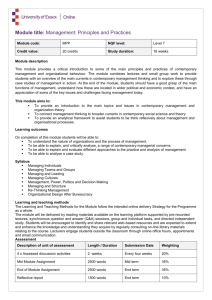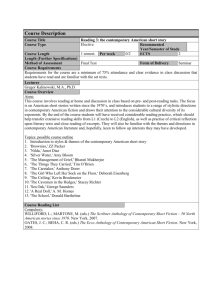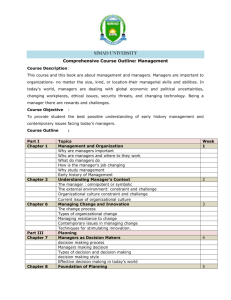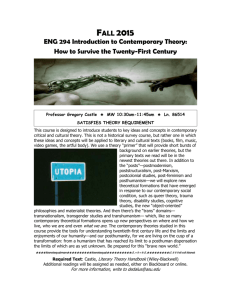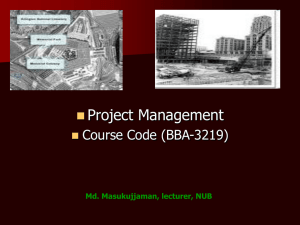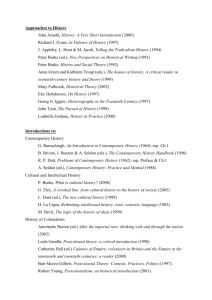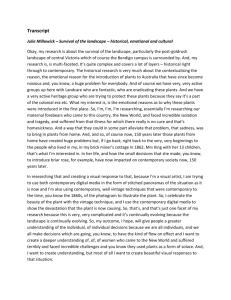Time and Control in Contemporary Work
advertisement
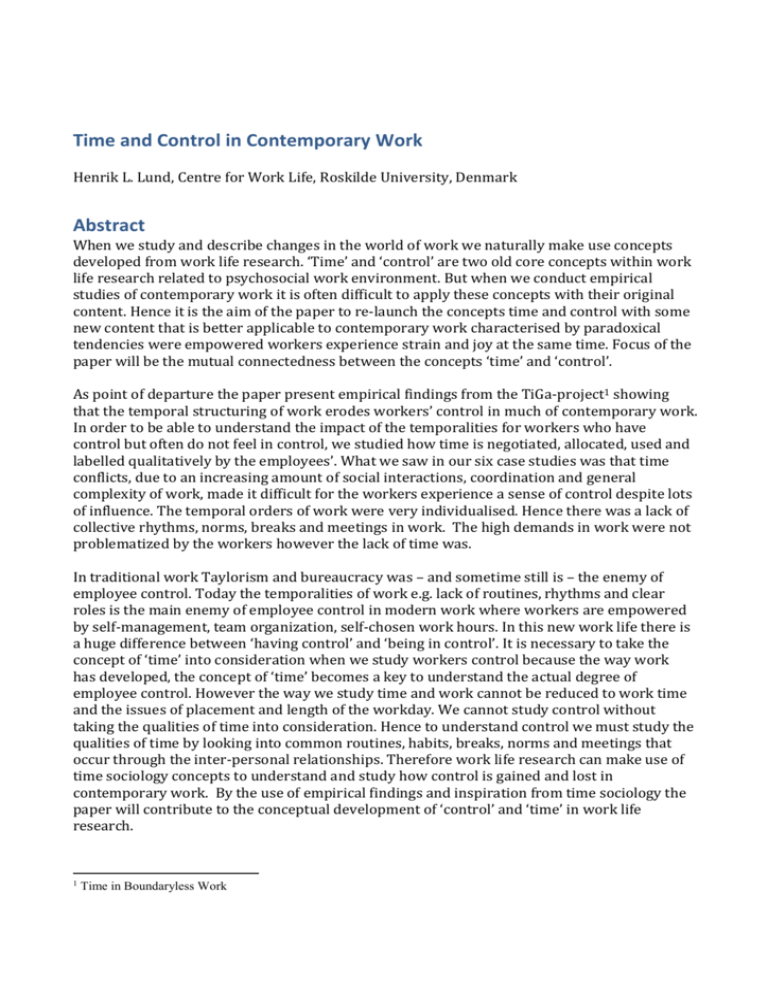
Time and Control in Contemporary Work Henrik L. Lund, Centre for Work Life, Roskilde University, Denmark Abstract When we study and describe changes in the world of work we naturally make use concepts developed from work life research. ‘Time’ and ‘control’ are two old core concepts within work life research related to psychosocial work environment. But when we conduct empirical studies of contemporary work it is often difficult to apply these concepts with their original content. Hence it is the aim of the paper to re-launch the concepts time and control with some new content that is better applicable to contemporary work characterised by paradoxical tendencies were empowered workers experience strain and joy at the same time. Focus of the paper will be the mutual connectedness between the concepts ‘time’ and ‘control’. As point of departure the paper present empirical findings from the TiGa-project1 showing that the temporal structuring of work erodes workers’ control in much of contemporary work. In order to be able to understand the impact of the temporalities for workers who have control but often do not feel in control, we studied how time is negotiated, allocated, used and labelled qualitatively by the employees’. What we saw in our six case studies was that time conflicts, due to an increasing amount of social interactions, coordination and general complexity of work, made it difficult for the workers experience a sense of control despite lots of influence. The temporal orders of work were very individualised. Hence there was a lack of collective rhythms, norms, breaks and meetings in work. The high demands in work were not problematized by the workers however the lack of time was. In traditional work Taylorism and bureaucracy was – and sometime still is – the enemy of employee control. Today the temporalities of work e.g. lack of routines, rhythms and clear roles is the main enemy of employee control in modern work where workers are empowered by self-management, team organization, self-chosen work hours. In this new work life there is a huge difference between ‘having control’ and ‘being in control’. It is necessary to take the concept of ‘time’ into consideration when we study workers control because the way work has developed, the concept of ‘time’ becomes a key to understand the actual degree of employee control. However the way we study time and work cannot be reduced to work time and the issues of placement and length of the workday. We cannot study control without taking the qualities of time into consideration. Hence to understand control we must study the qualities of time by looking into common routines, habits, breaks, norms and meetings that occur through the inter-personal relationships. Therefore work life research can make use of time sociology concepts to understand and study how control is gained and lost in contemporary work. By the use of empirical findings and inspiration from time sociology the paper will contribute to the conceptual development of ‘control’ and ‘time’ in work life research. 1 Time in Boundaryless Work
